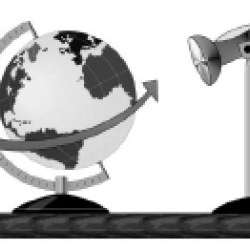Source Institutions
Source Institutions
Add to list Go to activity
Activity link broken? See if it's at the internet archive

This is an activity (located on page 131 of the PDF) related to sleep and circadian rhythms as well as space travel. Learners will discover how the light/dark cycle is dictated by the rotation of Earth. In addition, learners will examine the annual changes in the duration of light each day as the planet orbits the sun. Learners will also discuss the implications in the light/dark cycle for astronauts aboard an orbiting spacecraft. This activity can be enhanced by sharing the "Astronaut's Sleep" Podcast with learners (see related resource link). This resource guide includes background information and sample evaluation questions.
- Under 5 minutes
- 45 to 60 minutes
- free per group of students
- Ages 8 - 18
- Activity, Demonstration, Lesson/Lesson Plan, Simulation
- English
Quick Guide
Materials List (per group of students)
- Globe
- Flashlight
- Pencil
Subjects
-
Earth and Space Science
-
Astronomy
- Probes, Satellites and Spacecraft
- Earth Structure
-
Earth, Moon and Sun
- Days
-
Solar System
- The Sun
-
Astronomy
-
Life Sciences
-
Human Body
- The Brain and Nervous System
-
Human Body
-
Mathematics
-
Algebra
- Patterns
-
Data Analysis and Probability
- Data Analysis
- Data Collection
- Data Representation
-
Measurement
- Circles
-
Algebra
-
Physical Sciences
-
Motion and Forces
- Gravity
- Rotation Motion
-
Motion and Forces
-
The Nature of Science
-
The Scientific Process
- Conducting Investigations
- Formulating Explanations
-
The Scientific Process
Audience
To use this activity, learners need to:
- see
- touch
Learning styles supported:
- Involves hands-on or lab activities
Other
Includes alignment to state and/or national standards:
This resource is part of:
Access Rights:
- Free access
By:
- MacLeish, Marlene Y. ; McLean, Bernice R.
Rights:
- Public domain, NASA,
